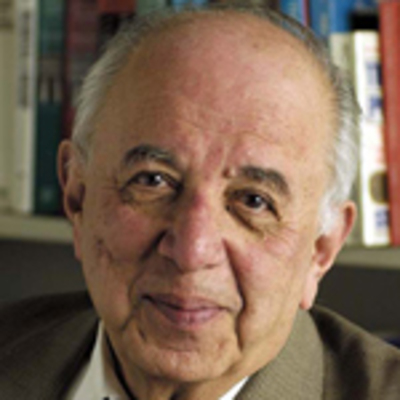India-US Relationship Thrives, Despite Tension During Cold War
India has moved very close to the United States with regard to military supplies. The United States today has responded very favorably to India with regard to India's own military development.

The US-India relationship saw some of its greatest progress during the Obama administration. Look at the development and cooperation in every field: trade, economics, investment and the staggering improvement today in the Indian economy. And there is the promise that India will continue to grow dramatically under the leadership of Prime Minister Narendra Modi, which puts the country way up in terms of its economic reputation and importance.
Post independence, India and the United States were united by the fact that both countries were democracies. Indian independence was favored by the United States. For example, President Franklin Roosevelt during his last days put enormous pressure on the British government — especially during the time of Winston Churchill — to broker Indian independence, which Churchill had resisted quite a bit. And this perhaps was the beginning of the great relationship.
But as the Cold War developed between the United States and Russia, Prime Minister Jawaharlal Nehru attempted to walk a fine line between two countries. Nehru’s position was that India was going to be non-aligned and take an independent attitude with regard to its own development.
In the meantime, Pakistan became a great United States ally, while India remained aloof. So initially this led to India being seen as pro-Russian because it refused to join either the United States or Russia.
You may recall that the United States, under what was called CENTO — the Central Treaty Organization — made alliances with Pakistan and openly made Pakistan an ally with regard to foreign policy. And so, even though India and the United States were both democracies — both believed in fair elections, both believed in the rule of law — at the same time there was tension between India and the United States.
As a matter of fact, the United States saw Nehru's non-aligned philosophy as being pro-Russian.
For example, when the Hungarian uprising took place in 1956, and the Soviet Union put it down brutally by force, India refused initially to even acknowledge the fact that the fact that the Russians were using brutal means of taking down the Hungarians. It was only when the Indian ambassador in Russia told Nehru of what was happening that Nehru was finally convinced of the Russian position.
And then during the Pakistan-Bangladesh war, India took the side of Bangladesh as Pakistan tried to put down the revolt. This put India at odds with the US. There was great tension, especially during the Nixon administration.
But after the Bangladesh issue was settled and it established its independence, and especially after the Nixon administration was over, India slowly moved closer and closer to the United States.
The breakthrough really came when Prime Minister Narasimha Rao was in office. The economic situation in India was desperate. Naramsimha Rao rejected the economic socialism of the Congress Party and openly became much more pro capitalist, pro free enterprise. And the United States responded and became a much closer ally of India.
Yes, there was tension when India developed its own economic weapons, but even that today seems to be improving. And the US. resentment against India developing its atomic arsenal has subsided. India today is an atomic power, but it has been it has been very restrained as far as its position on atomic threats of any kind.
India has moved very close to the United States with regard to military supplies. The United States today has responded very favorably to India with regard to India's own military development.
There is now great tension between the United States and China and India and China, which is attempting to assert her sovereignty in a manner she has not done so before. China, as you must recall, has actually invaded Indian space. China has established and taken over parts of Ladakh. And the United States backs India completely with regard to its position on the occupation of Ladakh, and India's attempt to establish its independence.
So the future of the US-India relationship is extremely bright. And in the foreseeable future, this trend of close cooperation in almost every field promises to continue.
ADVERTISEMENT
ADVERTISEMENT
E Paper
Video

 Dr. Minoo Adenwalla
Dr. Minoo Adenwalla








.jpg)
.jpg)


Comments
Start the conversation
Become a member of New India Abroad to start commenting.
Sign Up Now
Already have an account? Login